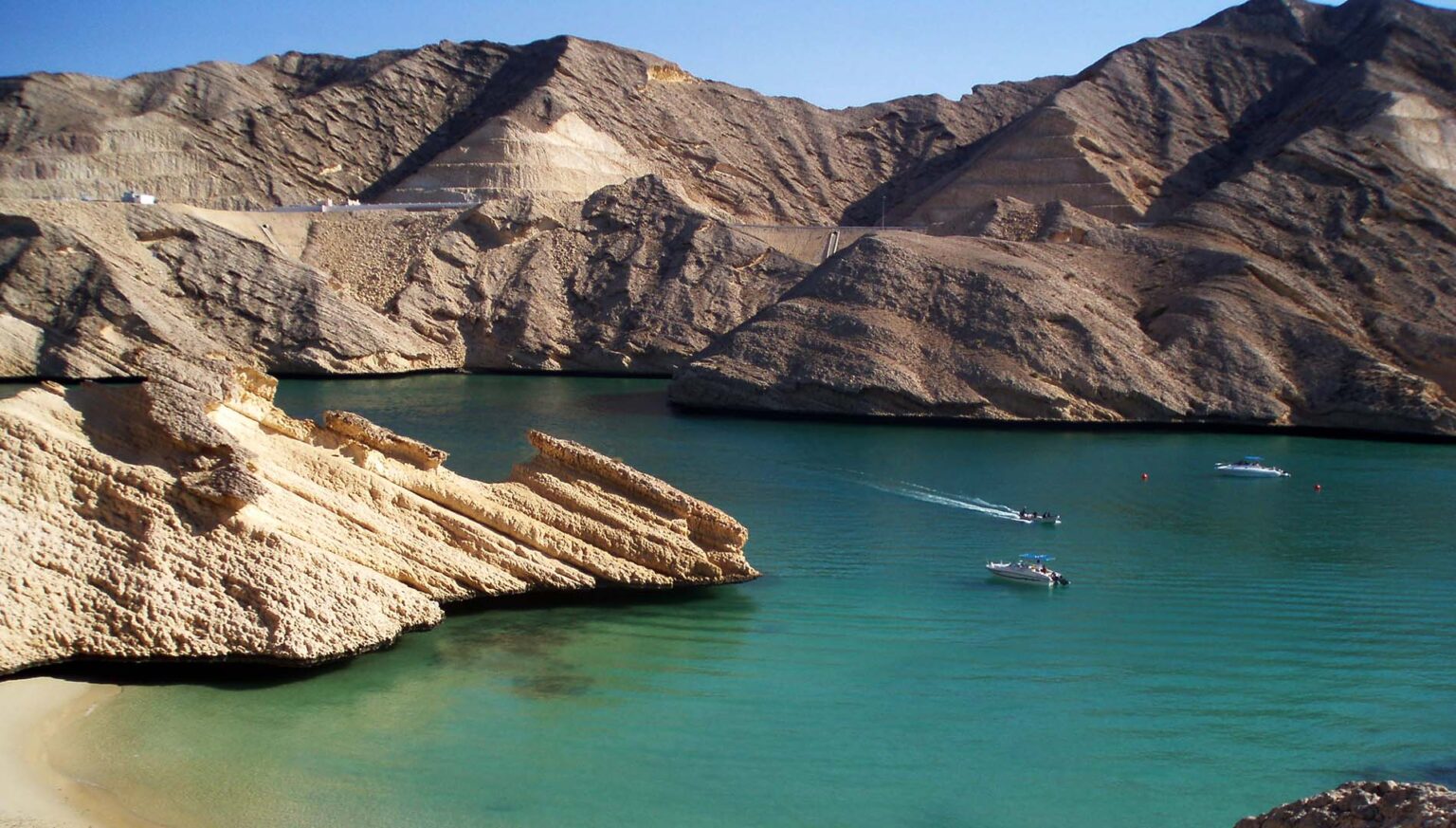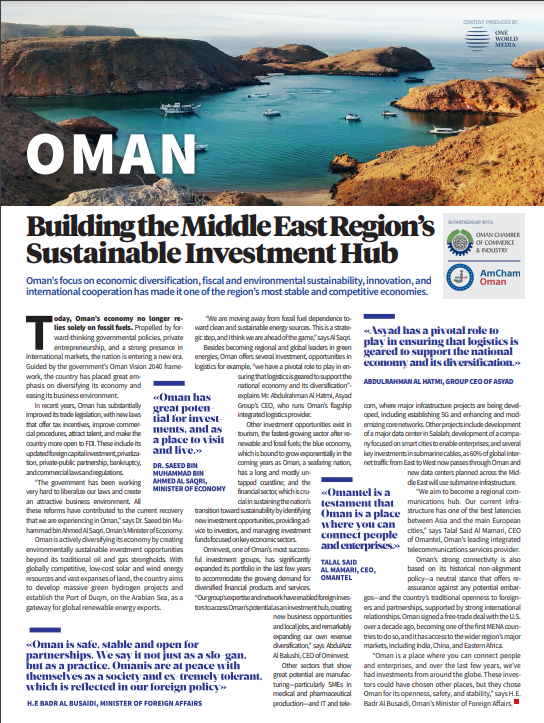Oman
Building the Middle East Region’s Sustainable Investment Hub

Today, Oman’s economy no longer relies solely on fossil fuels. Propelled by forward-thinking governmental policies, private entrepreneurship, and a strong presence in international markets, the nation is entering a new era. Guided by the government’s Oman Vision 2040 framework, the country has placed great emphasis on diversifying its economy and easing its business environment.
In recent years, Oman has substantially improved its trade legislation, with new laws that offer tax incentives, improve commercial procedures, attract talent, and make the country more open to FDI. These include its updated foreign capital investment, privatization, public-private partnership, bankruptcy, and commercial laws and regulations.
“The government has been working very hard to liberalize our laws and create an attractive business environment. All these reforms have contributed to the current recovery that we are experiencing in Oman,” says Dr. Saeed bin Muhammad bin Ahmed Al Saqri, Oman’s Minister of Economy.
Oman is actively diversifying its economy by creating environmentally sustainable investment opportunities beyond its traditional oil and gas strongholds. With globally competitive, low-cost solar and wind energy resources and vast expanses of land, the country aims to develop massive green hydrogen projects and establish the Port of Duqm, on the Arabian Sea, as a gateway for global renewable energy exports.

“We are moving away from fossil fuel dependence toward clean and sustainable energy sources. This is a strategic step, and I think we are ahead of the game,” says Al Saqri. Besides becoming regional and global leaders in green energies, Oman offers several investment opportunities in logistics. For example, “we have a pivotal role to play in ensuring that logistics is geared to support the national economy and its diversification,” explains Mr. Abdulrahman Al Hatmi, Asyad Group’s CEO, who runs Oman’s flagship integrated logistics provider.
Other investment opportunities exist in tourism, the fastest-growing sector after renewable and fossil fuels; the blue economy, which is bound to grow exponentially in the coming years as Oman, a seafaring nation, has a long and mostly untapped coastline; and the financial sector, which is crucial in sustaining the nation’s transition toward sustainability by identifying new investment opportunities, providing advice to investors, and managing investment funds focused on key economic sectors.
Ominvest, one of Oman’s most successful investment groups, has significantly expanded its portfolio in the last few years to accommodate the growing demand for diversified financial products and services. “Our group’s expertise and network have enabled foreign investors to access Oman’s potential as an investment hub, creating new business opportunities and local jobs, and remarkably expanding our own revenue diversification,” says AbdulAziz Al Balushi, CEO of Ominvest.
Other sectors that show great potential are manufacturing—particularly SMEs in medical and pharmaceutical production—and IT and telecom, where major infrastructure projects are being developed, including establishing 5G and enhancing and modernizing core networks. Other projects include the development of a major data center in Salalah; the establishment of a company focused on smart cities to enable enterprises; and several key investments in submarine cables, as 60% of global internet traffic from East to West now passes through Oman, and new data centers planned across the Middle East will use submarine infrastructure.
“We aim to become a regional communications hub. Our current infrastructure has one of the best latencies between Asia and the main European cities,” says Talal Said Al Mamari, CEO of Omantel, Oman’s leading integrated telecommunications services provider. Oman’s strong connectivity is also based on its historical non-alignment policy—a neutral stance that offers reassurance against any potential embargoes—and the country’s traditional openness to foreigners and partnerships, supported by strong international relationships. Oman signed a free-trade deal with the U.S. over a decade ago, becoming one of the first MENA countries to do so, and it has access to the wider region’s major markets, including India, China, and Eastern Africa.
“Oman is a place where you can connect people and enterprises, and over the last few years, we’ve had investments from around the globe. These investors could have chosen other places, but they chose Oman for its openness, safety, and stability,” says H.E. Badr Al Busaidi, Oman’s Minister of Foreign Affairs.



